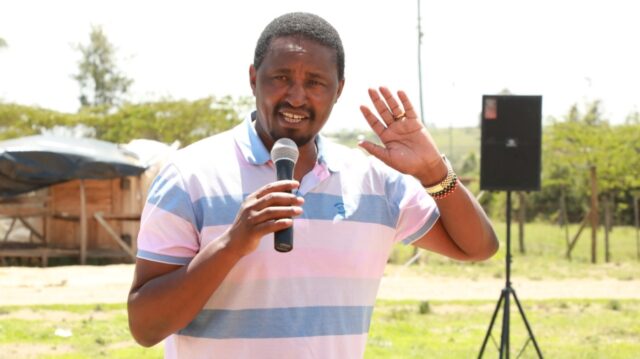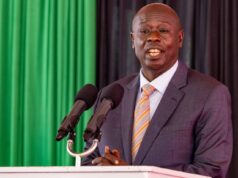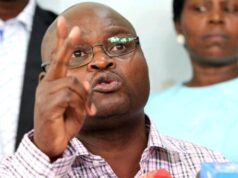- Matanya Catholic Church declines Ksh80,000 donation from Laikipia East MP Mwangi Kiunjuri.
- Kiunjuri had initially pledged Ksh40,000 but later doubled the amount.
- The church and congregation rejected the funds publicly.
- Catholic Church has discouraged political use of church events for self-promotion.
The Matanya Catholic Church has publicly rejected a Ksh80,000 donation from Laikipia East MP Mwangi Kiunjuri, reinforcing its stance against political interference in religious gatherings.
Kiunjuri, who was attending a church service, had initially pledged Ksh40,000 but later announced that he would double the amount to Ksh80,000. However, the church leadership and congregation declined the offer, firmly standing by their principles.
The public rejection of the funds took many by surprise, as politicians often use church platforms for donations, particularly during fundraising events. Kiunjuri, a seasoned politician, did not make any public remarks after the rejection but has previously expressed his support for churches in his constituency.
Catholic Church Stands Against Political Influence
The move comes in the wake of the Catholic Church’s directive discouraging politicians from using church events as platforms for political self-promotion. The leadership has insisted that religious gatherings should remain sacred spaces for worship and community engagement rather than being exploited for political gain.
Over the years, political leaders across Kenya have used church events to donate large sums of money, make public declarations, and solidify their political influence. However, the Catholic Church has taken a firm stand, urging politicians to support religious institutions without turning them into campaign platforms.
This rejection of Kiunjuri’s donation signals a strong stance against the mixing of politics and religion, a debate that continues to spark discussions about ethical campaign practices and the role of churches in governance.
It remains to be seen whether other churches will follow suit or whether politicians will adjust their approach to engaging with religious institutions ahead of the next election cycle.







